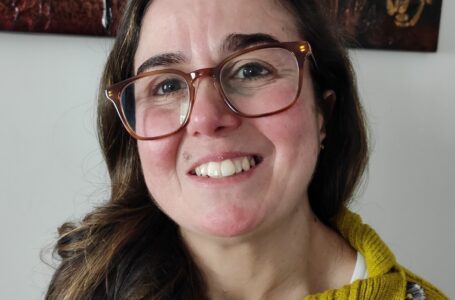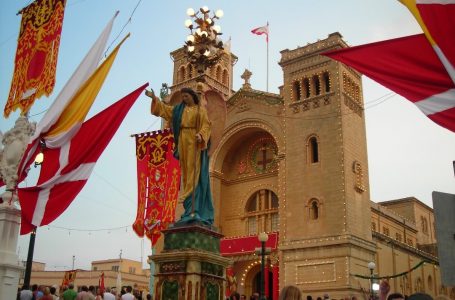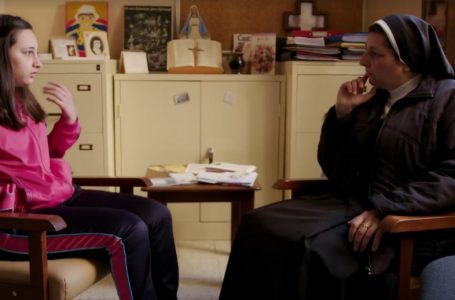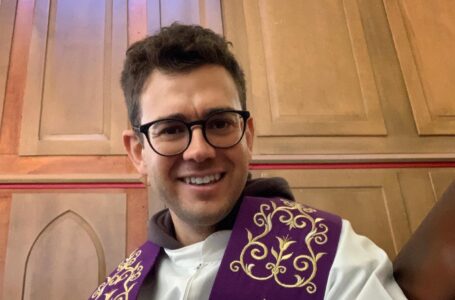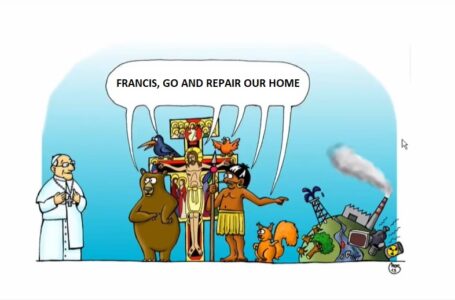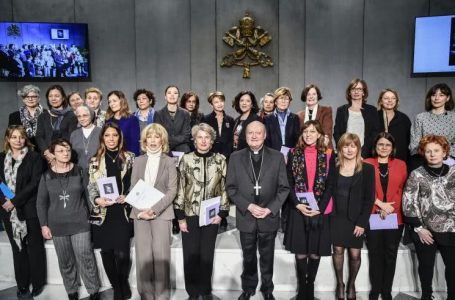Meet The Down-to-Earth FCJ Nun MaryAnne Francalanza
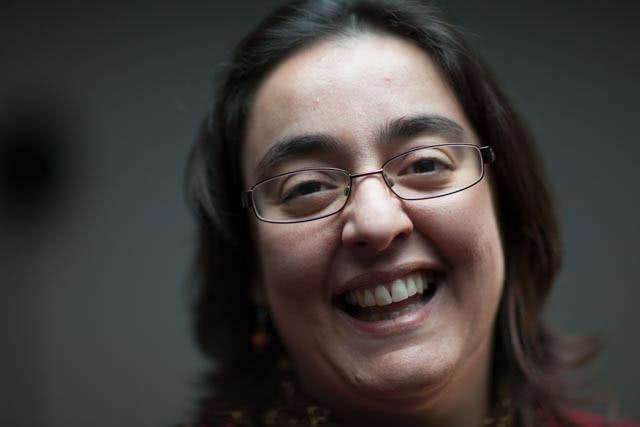
FCJ nun – Sr MaryAnne Francalanza
Meet FCJ nun Sr MaryAnne Francalanza – the young woman from Malta who felt she might not fit in a convent, but wanted to live a spiritual life full-time. This interview is divided into 4 topics – God, vows, social justice and vocation.
God:
How do you relate to God?
God is the faithful and constant companion in my life. I can speak to God like a friend. I like to go and sit in our chapel with a cup of tea and just be for a while, but I also bring to God the joys, sorrows and difficulties in my life as they happen. This does not mean that I ‘feel’ God with me all the time (although sometimes I catch glimpses!), but there is a part of me that knows that God is. It is very hard to put this down in words, they seem so small near the immensity of an experience of God.
How has your relationship with God evolved over the years?
Now I am more relaxed. I know that nothing I do can impress God, or please God or make God angry. God just loves me. And the closer I let myself get to her/him, the more I can let that love transform me into the best person I can be. I am more willing to let God be in every part of my life, the parts I am proud of and the parts I know need healing. I long to be freer and more willing to let this transformation happen, but I know that I often resist God’s work in me.
When I was younger I was more worried about doing ‘it’ right, praying correctly, for a particular amount of time, using particular pieces of the gospel, etc I was trying to impress God!
What made you give your whole life to God?
It is hard to know really. I suppose as I grew into a relationship with God, I fell in love. And so it became obvious that the object of my love had to have all my energy and focus. But in reality, I was drawn to this life and I was half way there before I realised that I had decided to be a religious sister.
What’s the link between your background in science & maths and your life of faith?
 That is an easy question! The more I study and know about how the world works (in the large things – the planets, stars, galaxies, and the small things, DNA, electrons, quarks, and everything in between), the more I am in awe at the beauty, the genius, the complexity of it all. It fills me with wonder and gives me a ‘wow’ feeling and this always turns me to God. My subject is mathematics and one of my images of God is that of infinity, and how there are infinities and then there are bigger infinities. It’s mind-blowing and amazing! The more that I learn about science and mathematics, the more my image of God has to explode out and expand so that there is always more to know, more to experience, more to reflect on.
That is an easy question! The more I study and know about how the world works (in the large things – the planets, stars, galaxies, and the small things, DNA, electrons, quarks, and everything in between), the more I am in awe at the beauty, the genius, the complexity of it all. It fills me with wonder and gives me a ‘wow’ feeling and this always turns me to God. My subject is mathematics and one of my images of God is that of infinity, and how there are infinities and then there are bigger infinities. It’s mind-blowing and amazing! The more that I learn about science and mathematics, the more my image of God has to explode out and expand so that there is always more to know, more to experience, more to reflect on.
Vows:
What are the hardships of leaving everything?
I feel like a hypocrite when I am asked this question because I don’t feel that I have left everything. There’s so much more that I have gained than that I gave up. I have a community that loves and supports me. My family in Malta who are only ever a Skype call away. I have a ministry I love and that gives me joy and a sense of fulfilment. I have had so many opportunities to meet people from all walks of life and go places that I would not have had had I not been an FCJ nun (FCJ means Faithful Companions of Jesus).
Also, I think of some of the people I have worked with who really have nothing, not by choice, but because life has been hard for them. People who live in unimaginable material poverty in the Philippines who rely on a rubbish dump for their livelihood; persons who have debilitating mental health issues that cause them to lose touch with their families, lose their jobs and become homeless on the streets of London; those who live in abusive situations like those who are trafficked for slave labour or the sex trade. Compared to these people I am rich both materially and with respect to my relationships.
There are some hardships in my life as there are in all walks of life, but they are not the first things I think of when I reflect on my life.
You meet a nice interesting guy but you have to lead a celibate life; you wish to buy something but you don’t have your own money; you want to do something your way but you have to be obedient. How do you deal with these moments of “not having your man, your money, your way”?
There are times when I feel that I lack something, maybe a special person for whom I am ‘the one’, maybe an item that might be considered a luxury, or a time of holiday. When this happens I try to be gentle with myself while also placing it all in perspective. It often doesn’t take me long to realise how much I have that I am grateful for. The best remedy for these times of desolation is a chat with a good friend, or even taking time out of the busyness of everyday life to do something fun and relaxing.
I do not see the vows as things I have chosen NOT to have, but rather as life choices that free me to be a happy person who is sometimes able to cooperate with God in bringing this wonderful dream, that we call God’s kingdom, to reality.
Social Justice:
How do find God in the public sphere, in your daily life?
First of all, nothing is outside of the realm of your relationship with God. God is in your private moments of prayer, reflection and rest; but also in all your public moments, all your conversations, your work, your politics.
In the Ignatian tradition, which is the way of life of the FCJ nun, God is alive and active in all things, so we can find God in all things, in all persons and in all moments. If you believe this is true, it has a lot of implications on the way you view the world around you.

When you feel helpless in front of injustices, what do you do?
If all of creation is a revelation of God, then injustice in any form is just not acceptable. I am called to speak for those who cannot speak for themselves, whether they are plant, animal or human person. It is important that I continually reflect on my life and ask myself: In what way are my actions oppressing others? How do I collude with systems that are unjust, by my words, my silence, my vote, my shopping choices?
So often I feel overwhelmed, there are so many issues and problems in our world. This can cause me to be paralysed and I end up doing nothing. At these moments I try to remember that I am not asked to save the world (as much as I would like to!) but to play my small part, and leave the rest in God’s hands. This means that I am empowered to act and speak in my small way.
How do you link prayer and social justice?
If you want to live a comfortable life where you can focus on your needs and meet them as best you can, then do not pray. In prayer, God opens our heart to compassion and love, and so we ‘see’ more and cannot help but act. In reading the Gospels we encounter Jesus who was so passionate about the inclusion of all, and justice for all. As we see him healing, preaching and challenging the status quo, we are invited to do the same. This comes with a health warning since Jesus ended up on a cross. The way of the Gospel is often not the way of comfort and popularity.
What is companionship about? How have you helped others experience it?
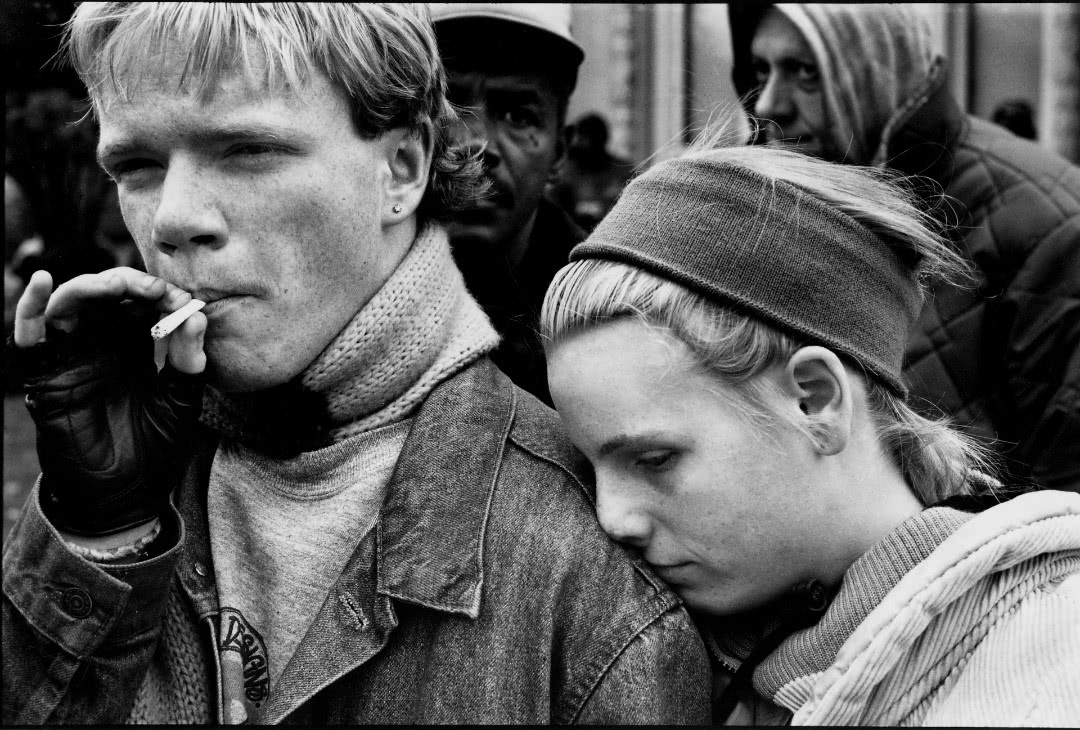 Companionship is about the breaking of bread together. It’s about sharing our life, not just being in the same geographical space. To be a companion is to walk or stand alongside someone in joy and suffering. It asks a lot of generosity of heart.
Companionship is about the breaking of bread together. It’s about sharing our life, not just being in the same geographical space. To be a companion is to walk or stand alongside someone in joy and suffering. It asks a lot of generosity of heart.
In the FCJ tradition, the role models for companionship are the women who were with Jesus at the foot of the cross. They stayed with Jesus in that moment of pain and desolation, unable to offer anything except their presence. But they were also with Jesus in his moment of resurrection, rejoicing with him and being sent by him to spread the news of joy to others. It is their faithfulness that inspires us to try to live the same faithfulness with people we meet. Companionship calls us to somehow hold on to hope for people who have no more energy to hope or to believe.
Vocation:
What do you do as an FCJ nun? What are the joys of your vocation?
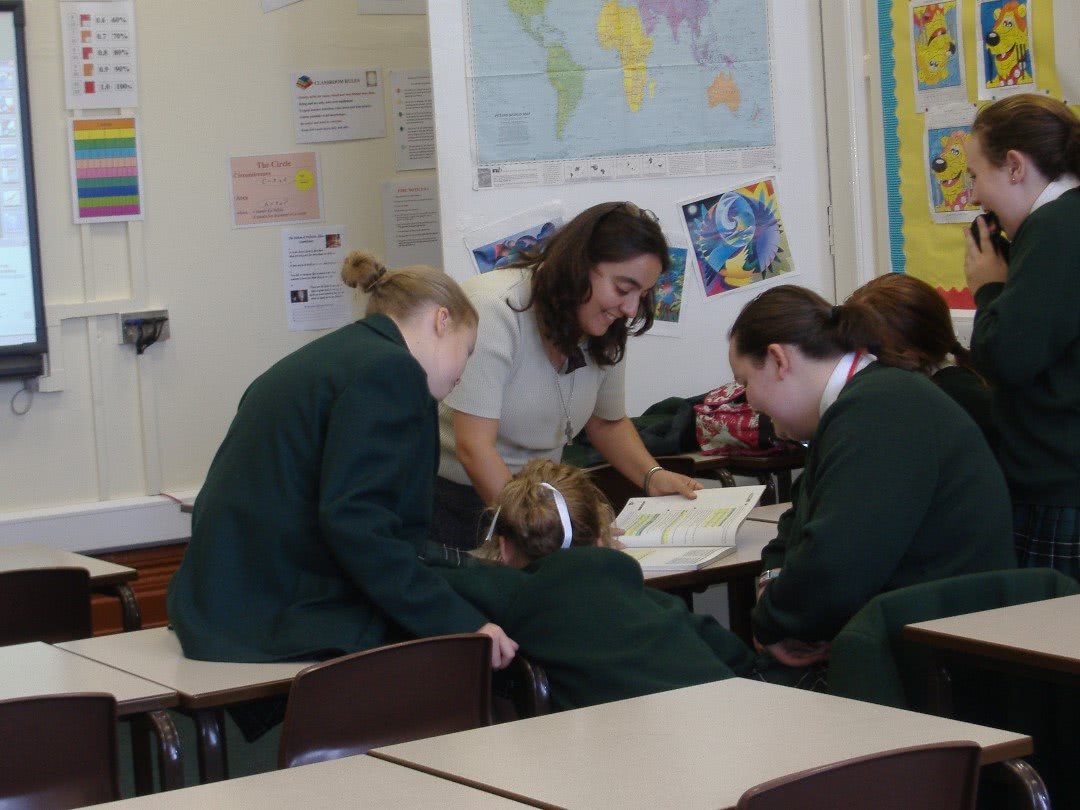 As an FCJ nunI love my work in school. I work mainly in the sixth form teaching mathematics to A-Level students and having pastoral responsibility for the students. I enjoy the relationships that I have the privilege to build with the students at this crucial time in their lives. They make me laugh, and sometimes cry! It is wonderful to see them grow to be mature, responsible adults, to accompany them as they choose their future careers. I have a real sense that my work is worthwhile, and this is a constant source of joy for me.
As an FCJ nunI love my work in school. I work mainly in the sixth form teaching mathematics to A-Level students and having pastoral responsibility for the students. I enjoy the relationships that I have the privilege to build with the students at this crucial time in their lives. They make me laugh, and sometimes cry! It is wonderful to see them grow to be mature, responsible adults, to accompany them as they choose their future careers. I have a real sense that my work is worthwhile, and this is a constant source of joy for me.
One of the free gifts that I received when I was born is a love for music and singing. I enjoy singing in my parish choir, in the classroom, in the shower, wherever… It is truly a way of expressing my feelings, my faith, my love for life.
What attracted you to the FCJ nuns?
The first thing that attracted me to the FCJ nuns was the fact that they lived the Jesuit Constitutions. I had become familiar with Ignatian Spirituality and wanted to live it in my own life.
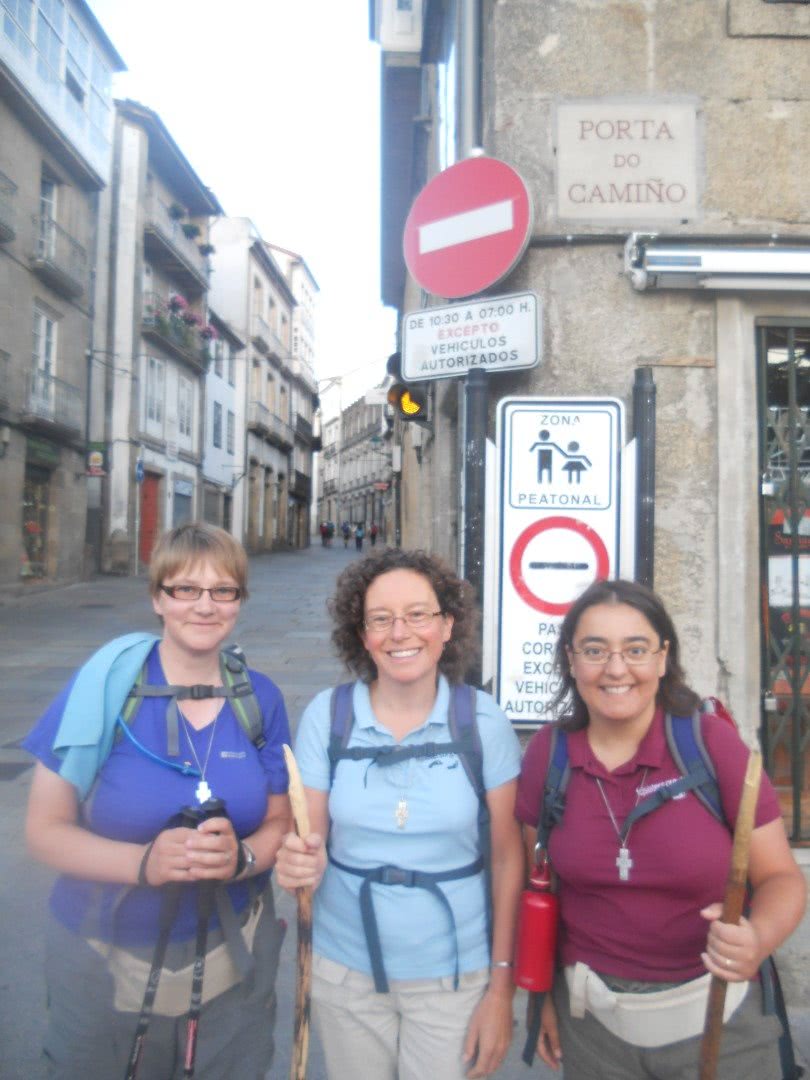 When I actually met some FCJ nuns, it was the way they embodied Ignatian Spirituality that really attracted me. It was a way of living it that was feminine. I met strong women who were very capable and independent and chose to live with gentleness and a great sense of companionship with each other. They were women of prayer and reflection who were free to be sent anywhere in the world where there was a need. I felt welcome among them.
When I actually met some FCJ nuns, it was the way they embodied Ignatian Spirituality that really attracted me. It was a way of living it that was feminine. I met strong women who were very capable and independent and chose to live with gentleness and a great sense of companionship with each other. They were women of prayer and reflection who were free to be sent anywhere in the world where there was a need. I felt welcome among them.
Updated: March 2018
To meet the FCJ nuns or get to know more about them you can visit their website or their Facebook page.
Read more:
– Pope Francis’ Inspirational Quotes on Religious Life
– “I’m a Member of the Ordo Virginum” – Consecrated Virginity Vocation
